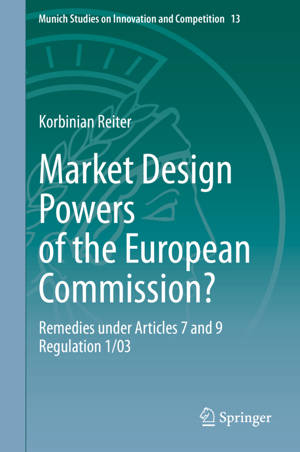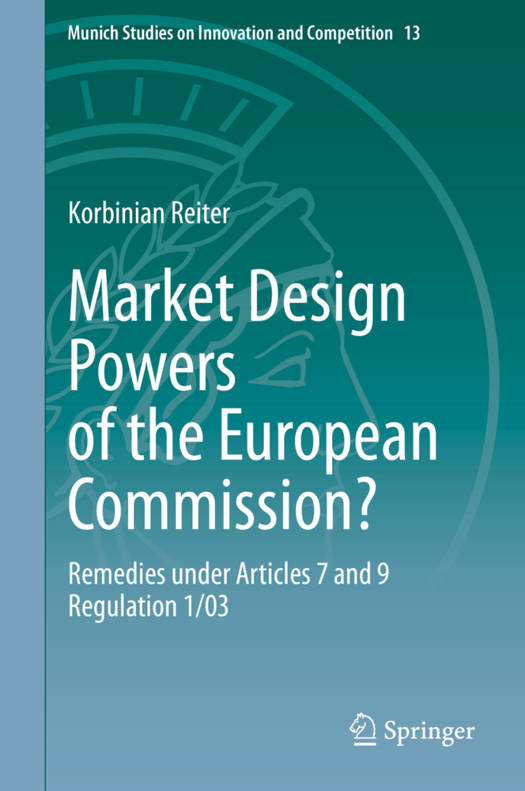
Door een staking bij bpost kan je online bestelling op dit moment iets langer onderweg zijn dan voorzien. Dringend iets nodig? Onze winkels ontvangen jou met open armen!
- Afhalen na 1 uur in een winkel met voorraad
- Gratis thuislevering in België vanaf € 30
- Ruim aanbod met 7 miljoen producten
Door een staking bij bpost kan je online bestelling op dit moment iets langer onderweg zijn dan voorzien. Dringend iets nodig? Onze winkels ontvangen jou met open armen!
- Afhalen na 1 uur in een winkel met voorraad
- Gratis thuislevering in België vanaf € 30
- Ruim aanbod met 7 miljoen producten
Zoeken
Market Design Powers of the European Commission?
Remedies Under Articles 7 and 9 Regulation 1/03
Korbinian Reiter
€ 105,45
+ 210 punten
Uitvoering
Omschrijving
This book provides a comprehensive analysis of the remedies practice the European Commission has adopted on the basis of articles 7 and 9 of regulation 1/03. Using article 7 as a normative benchmark, it shows that most of the criticism levelled at the Commission's article 9 decisions and the Alrosa judgment of the CJEU is not justified, since critics tend to over-state both the rigour of article 7 and the laxness of article 9. Remaining inconsistencies between the commitment practice and the standards for infringement decisions can, it is submitted, be justified by the consensual nature of commitment decisions and their underlying goal of procedural economy. Moreover, it is suggested that too little importance is generally assigned to the beneficial effect which commitments bring about by providing for precise and enforceable obligations without sacrificing the concerned undertakings' freedom to choose how to put the infringement to an end. Adopting a case-oriented approach, this study provides valuable insights for academics and practitioners alike.
Specificaties
Betrokkenen
- Auteur(s):
- Uitgeverij:
Inhoud
- Aantal bladzijden:
- 563
- Taal:
- Engels
- Reeks:
- Reeksnummer:
- nr. 13
Eigenschappen
- Productcode (EAN):
- 9783662607107
- Verschijningsdatum:
- 7/02/2020
- Uitvoering:
- Hardcover
- Formaat:
- Genaaid
- Afmetingen:
- 156 mm x 234 mm
- Gewicht:
- 988 g

Alleen bij Standaard Boekhandel
+ 210 punten op je klantenkaart van Standaard Boekhandel
Beoordelingen
We publiceren alleen reviews die voldoen aan de voorwaarden voor reviews. Bekijk onze voorwaarden voor reviews.











